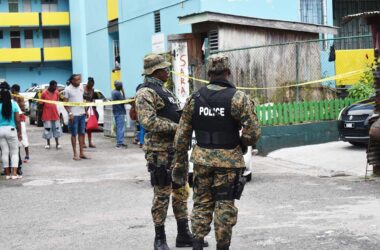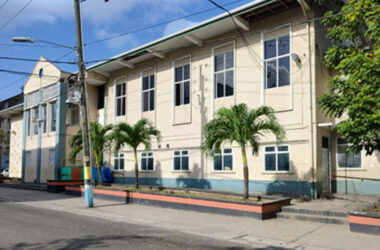In light of the riots at the island’s sole prison facility earlier this year, the Bordelais Correctional Facility, we focus this week’s editorial on the State’s responsibility or duty to persons who are deprived of their liberty, meaning the inmates at the facility.
One of the duties of the State, if not the fundamental duty, with respect to persons incarcerated, is to exercise effective control over the prison and to prevent acts of violence. That acts of violence are emanating from the prison population means that the State is not exercising effective control over the prison.
It must be understood that the deprivation of liberty has well-defined boundaries, which cannot be exceeded by the activities of the prison authorities.
One such objective of the State is to protect the life and ensure humane treatment for any person deprived of liberty who enters the prison system. This includes the positive obligation to take all preventative measures to protect the prisoner from attacks, or attempted attacks, by the State’s own agents or third parties, including other prisoners.
A report by the Inter-American Commission on Human Rights notes that the State must also ensure the human rights of persons deprived of liberty who are in its care.
Let’s re-focus on the riots at the Bordelais Correctional Facility for a minute, where inmates claimed that their actions were as a result of a lack of information provided by the prison authorities about the coronavirus and that little was being done by the authorities to protect them from the virus.
At the time of the riots, eight inmates were positively diagnosed with the virus. That number has grown much bigger since then prompting the State to implement certain measures beyond the ordinary that it hopes will reduce a further spread of the virus among the prison population.
It must be noted that shortly after the riots, the prison authorities said they were doing all that they possibly could do to mitigate the spread of the virus and that inmates will always complain irrespective of whatever is done for them.
Another reason for the riots, as exclaimed by inmates themselves, is the unconscionable and exhaustive delays in court hearings for their cases. Many of them are on remand for matters that should have been dealt with ages ago.
Such stories are not made up, they are true. Almost every Saint Lucian knows of the huge backlog of cases in the courts. The question is: is it inhumane or a violation of inmates’ rights to have them languishing in a prison cell, not knowing when their time in court will come, more so, if their matters are either a misdemeanor or a notch above that?
Reports are frequently made of inmates at the Bordelais Correctional Facility languishing in a cell for shop lifting, for being in possession of a handful of ounces or pounds of pot, etc., cases that really do not require them to be on remand for long periods of time, or, in some cases, for the amount of time they are presently on remand.
The argument can be made that the inability of the State to set a reasonable enough date to hear simple cases of the type mentioned above amounts to a violation of the inmates’ rights. That argument could further be stretched to say that the State, as a guarantor of the rights of persons deprived of liberty, has a duty to ensure that the rights of inmates are not trampled on.
Saint Lucia, as a State, has an obligation to respect the rights and freedoms of all its citizens without any discrimination whatsoever. This includes persons who are deprived of their liberty.
While the State has effective or complete control of persons who are deprived of liberty, that control does not extend to a violation of their rights. In other words, not because the State has that level of subordination over inmates that the State should deprive inmates of their rights.
Finally, it must be noted that the duty of the State to respect and ensure the rights of persons deprived of liberty is not limited only to what happens within the prison walls. This also extends to circumstances such as the transfer of inmates to judicial proceedings, to hospitals and setting timely dates for their cases to be heard, etc., etc.














